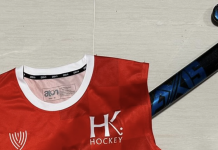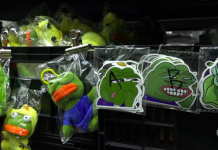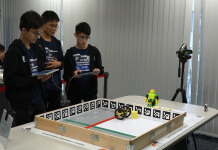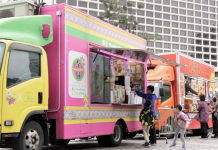People in the community dedicate themselves to promoting better understanding of Hong Kong among the international community.
Reporters: Brian Yu, Grace Liyang, Nannerl Yau
Editors: Doris Yu, Jessica Li
Diplomacy is typically thought of as something undertaken by states to advance their interests and tell their side of a story on the international stage. But some Hongkongers are hoping to conduct a kind of informal diplomacy. They think people around the world need to hear Hong Kong’s stories from Hong Kong people, so that they won’t simply regard Hong Kong as being the same as any other Chinese city, or solely equate it with China.
Based on the idea of civic diplomacy, some local scholars founded Network DIPLO, a network that aims to foster a vision of “Hong Kong in the world” by organising city tours and maintaining close contact with overseas representatives such as consulates in Hong Kong.
Some people are worried that the soft power of Hong Kong is in decline. Derek Yuen Mi-chang, the Convener of Network DIPLO, is one of them. Given its unique history and international nature, Yuen thinks Hong Kong city deserves to have its own diplomacy efforts.
To do this, Network DIPLO organises city tours to introduce overseas visitors and foreign residents to Hong Kong’s governance system in the British colonial period, the history of the Sino-British negotiations, the drafting process of the Basic Law, and the development of Hong Kong’s relations with the Mainland under “One Country, Two Systems”.
Network DIPLO is not the only group trying to promote Hong Kong to the world from a local perspective. Hong Kong Free Tours is a platform created to facilitate exchange between travellers and locals. During its walking tours, tour guides are encouraged to share their own feelings towards the city with tourists, whether they are positive or negative. The only principle is that the guides should think their sharing will help tourists understand the city from a new perspective.
“Under current system, whatever happened, Hong Kong people will not be able to speak for themselves, it will be told by Chinese government officially,” says Michael Tsang Chi-fai, the founder of HK Free Tours. “Hong Kong Free Tours cannot fill this gap, but it provides people [with] a different channel and perspective to see Hong Kong.”
The tour guides don’t just take tourists to visit important and memorable spots, they also show them pictures of major events that happened in this city, such as the Umbrella Movement in 2014 and the Mong Kok unrest in 2016. “So the guideline for everyone in HK Free Tours is, you need to speak about certain topics, but how to speak is up to you,” Tsang adds.
While different city tours are helping tourists understand more about the city, some artists strive to promote a better understanding of Hong Kong through music and art. Alex Yiu, a local composer, who is also a visual and sound artist, was inspired by events such as the 1967 leftist riots and the jailing of the Occupy Movement student leaders. He composed a song named Double to express his feelings about Hong Kong’s political situation. The work consists of music and video, which includes footage of the 1967 Riots and the jailing of the Occupy Movement’s student leaders. The piece was performed in public for the first time by The Hong Kong New Music Ensemble at the Cycle Music and Art Festival in Iceland.
“Some people came over to me to discuss and chatted about Chinese history and Chinese politics: contemporary politics or Ancient Chinese culture,” says Yiu. “I feel like the audience has a wide aspect of what is going on with the rest of the world.”
Yiu says artists have been incorporating political elements into their work throughout history.
“It is important for us to bring out the political situation in Hong Kong because we are in need or somehow have the anger or the urge to push the political situation out of Hong Kong,” says Yiu. “At the same time, I wonder if we take out the politics or social aspect from Hong Kong art, what is the rest of Hong Kong Art will be?”
It is not just Hongkongers who live in the city who are intent on telling Hong Kong’s story. Some Hong Kong students studying overseas and professionals working abroad are also joining in. After the Umbrella Movement, several young Hongkongerss who study and work in the United Kingdom set up an organisation named Democracy for Hong Kong (D4HK), in order to support Hong Kong’s democracy movement and raise awareness of Hong Kong’s political development in Britain. The group organises protests in London to raise awareness in the international community when major events take place in Hong Kong. It also arranges meetings with British politicians in the hope of raising Hong Kong issues at the parliamentary level.
“With our efforts, more and more British people start to know more about Hong Kong. Afterwards, they also started to talk about Hong Kong society,” says Jobie Yip, one of the organisers.
“Although we are not a front-line organisation, we are just supporting [the] democracy movement in Hong Kong, but still, we hope to make a contribution.”









































